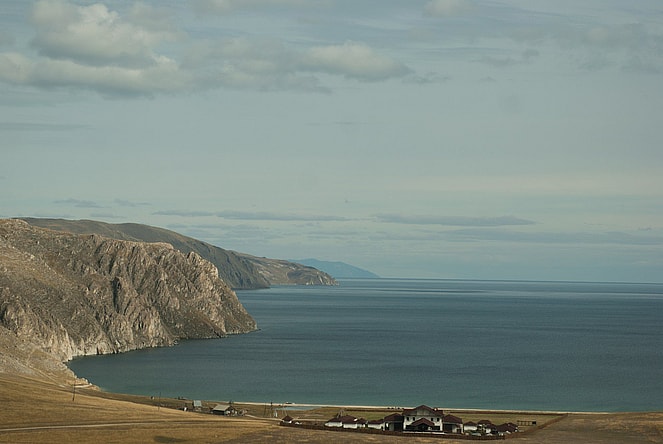
While oceans are impressive, there is something peaceful yet mysterious about lakes that keep us coming back for more. Whether it’s fed by mountain runoff, completely clear, or superbly deep, lakes are amazing fresh or saltwater sources. But which one holds the title of the world’s deepest lake? Keep reading to learn more.
RELATED: What’s the Biggest National Park in the US?
How Scientists Measure Depth
There are several methods that scientists use to measure the depth of a lake, which are listed below:
- Sounding Weight: A weight is attached to a line and lowered into the lake until it touches the bottom. On the other end, a marker is placed where the line reaches the water’s surface, and the line is retrieved. Then the line is measured with a tape measure.
- Sonar: Ships can use sonar to send sound waves to the bottom of the lake, determining the depth of the lake by how long it takes for the echo to return.
- Submersible Pressure Transducers: These devices can calculate the pressure exerted on them by the water column above. If there is more water above the sensor, the pressure will increase. The pressure number is then converted to feet or meters to find the depth.
- Secchi Disk: To find the Secchi depth, scientists lower a Secchi disk into the water from the shaded side of a boat until the disk is no longer visible. Scientists record the measurement and then raise the disk to when it reappears, creating the Secchi depth.
The World’s Deepest Lake

The world’s deepest lake is Lake Baikal, situated in southern Siberia, Russia. Also known as a rift lake, Lake Baikal has a maximum depth of 5,387 feet, making it the world’s largest freshwater lake by volume, containing 22-25% of the world’s fresh surface water. This is more than all of the North American Great Lakes combined. Lake Baikal is also the world’s oldest lake at 25-30 million years old.
Not just home to water, Lake Baikal houses thousands of species of plants and animals, many of them endemic (native) to that region. The Buryat tribes also reside there, raising goats, camels, cattle, sheep, and horses on the eastern side of the lake. UNESCO declared Baikal a World Heritage Site in 1996.
CHECK OUT: What’s America’s Biggest River?
Other Deep Lakes in the World
While the deepest lake in the world resides in Russia, there are other deep lakes scattered around the world, from Tanzania to Antarctica. Below are the four deepest lakes in the world after Lake Baikal, along with their deepest points.
- Lake Tanganyika (4,710 feet)
- Caspian Sea (3,360 feet)
- Lake Vostok (2,950 feet)
- San Martín Lake (2,742 feet)
What is the Deepest Lake in the US?

Looking for the deepest lake in the US? Go no further than Oregon, where you can find Crater Lake National Park. Set in the Cascade Range, Crater Lake was formed around 7,700 years ago when a volcano known as Mount Mazama collapsed after an eruption.
Today, Crater Lake is famous for its deep blue color, which is due to the lake’s depth and water clarity. The lake is so clear because there is very little sediment in the water, as it mostly comes from rain or snowfall. The deepest point of the lake is 1,949 feet, earning the title of the deepest lake in the US and tenth in the world.
What is the Deepest Lake in North America?
Broadening the focus to North America, the deepest lake in the continent resides in Canada. Great Slave Lake is the second-largest lake in the Northwest Territories of Canada and the deepest lake in North America, with a depth of 2,015 feet. The lake covers 10,500 square miles and ranks tenth to twelfth largest by volume in the world.
Great Slave Lake shares its name with the First Nations people of the Dene family, called Slavey by their enemies, the Cree. There are communities all around the lake, with some only holding a few hundred people or even abandoned.
ALSO READ: What is the Lowest Point in the US?
In Conclusion
Lakes are a great way to let loose, whether you’re swimming, boating, or fishing its waters. While most lakes are not that deep, some of the world’s deepest lakes are worth traveling to. Boasting clear water, beautiful mountainscapes, or indigenous villages, each of these lakes has a past stretching back farther than humans that is quite incredible.



